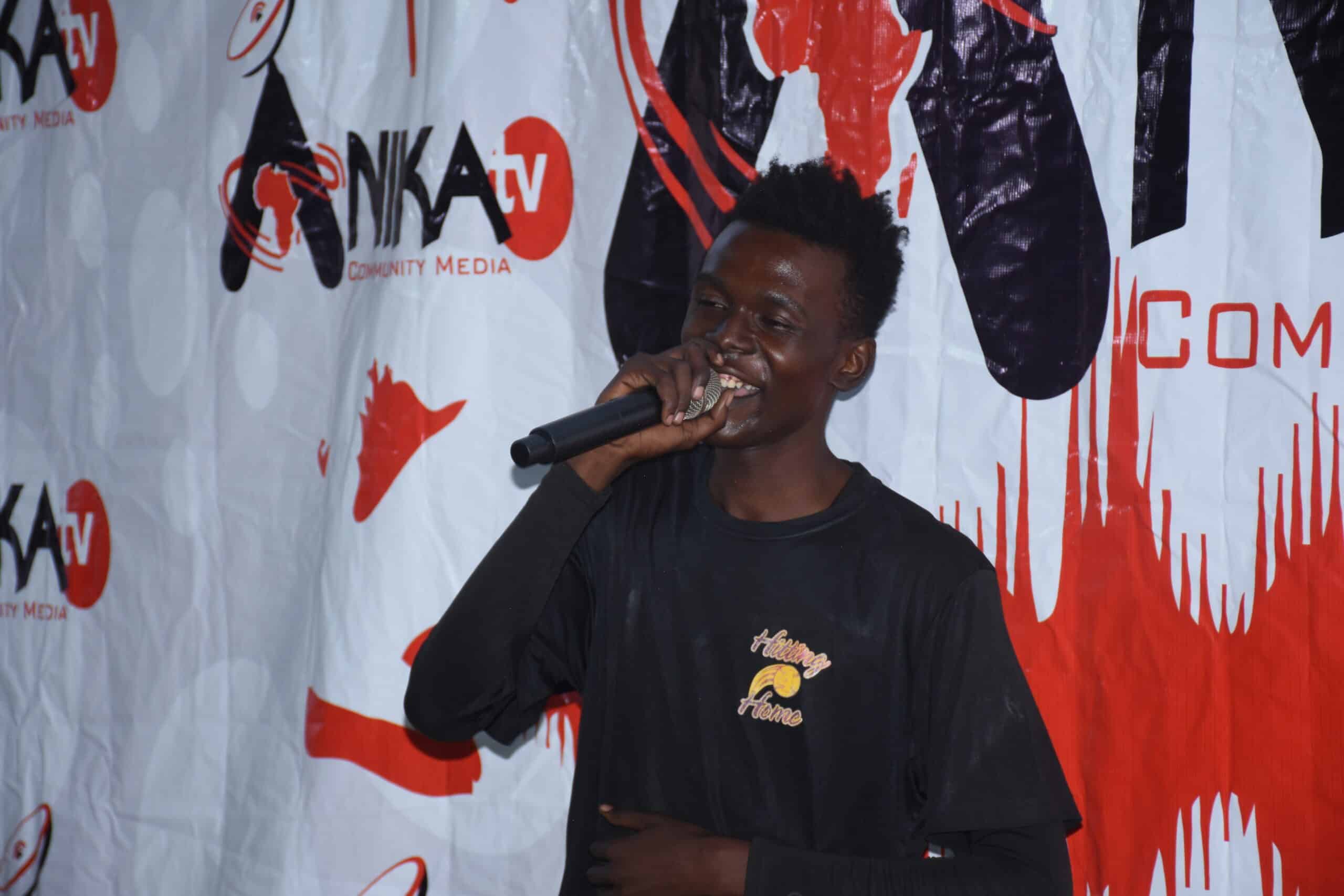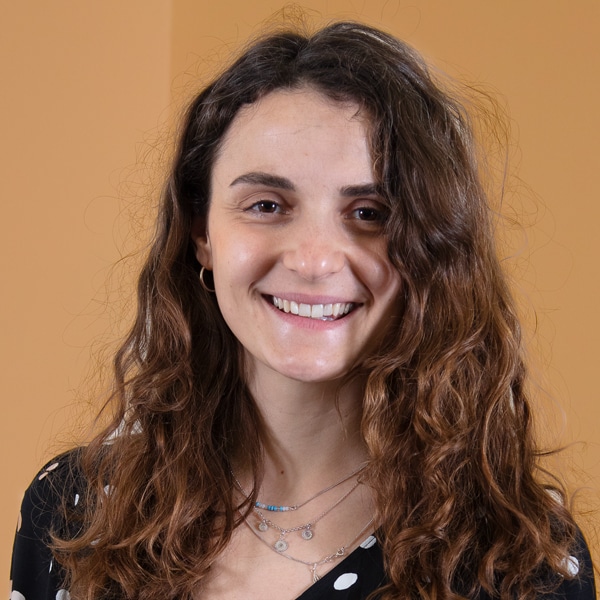Anika Talent Show: Empowering Kenya's Youth for Environmental Education
Visual artists, dancers, poets, thespians, and vocalists between the ages of 14 and 25 were brought together in a lively event in Kenya promoting green skills and environmental justice, aligning with the International Youth Day 2023 theme.
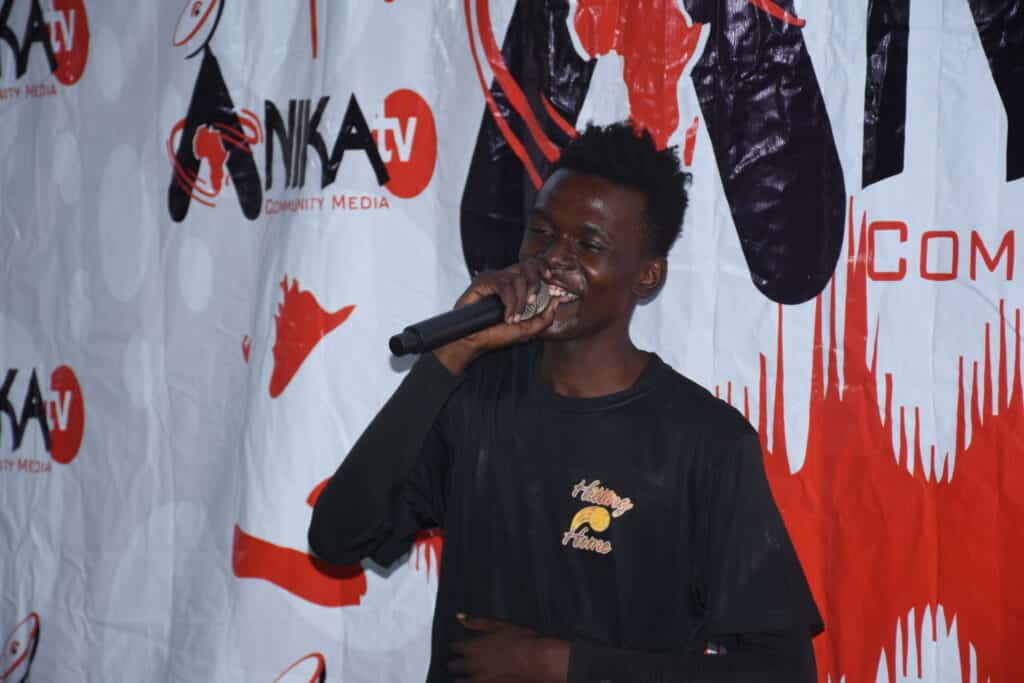
This event was made possible by Nicholas Songora, 2021 Goldin Global Fellow from Kenya and Founding Director Manyatta Youth Entertainment, and his dedicated team behind organizing the Anika Talent Show in celebrating International Youth Day in Partnership with the Forum civ Eastern and Southern Africa hub under the Wajibu Wetu; Jumuika Sikika Program with collaboration from the private sector, religious leaders, persons with disabilities leadership, national and county governments.
Nicholas speaks more to the Goldin Institute about this activity and why it represents a movement that harnesses the power of art to drive change.
He believes that people together can create a sustainable world where everyone, through artivism, contributes to a brighter future. Already, he is leaving his mark on infusing positive change and possibilities among young people.
Nurturing the Youth as Change Agents for Environmental Issues
This gathering equipped young people with green skills and a profound understanding of environmental justice while utilizing the transformative potential of arts to foster sustainability in society.
Nicholas delves into how they incorporated sustainability and environmental justice in this event.
“The activity involved performances like dance and music that narrated stories of environmental struggles, resilience, and hope. These performances fostered empathy, understanding, and a sense of responsibility toward the planet. This was a powerful medium to raise awareness about environmental challenges.” - Nicholas Songora
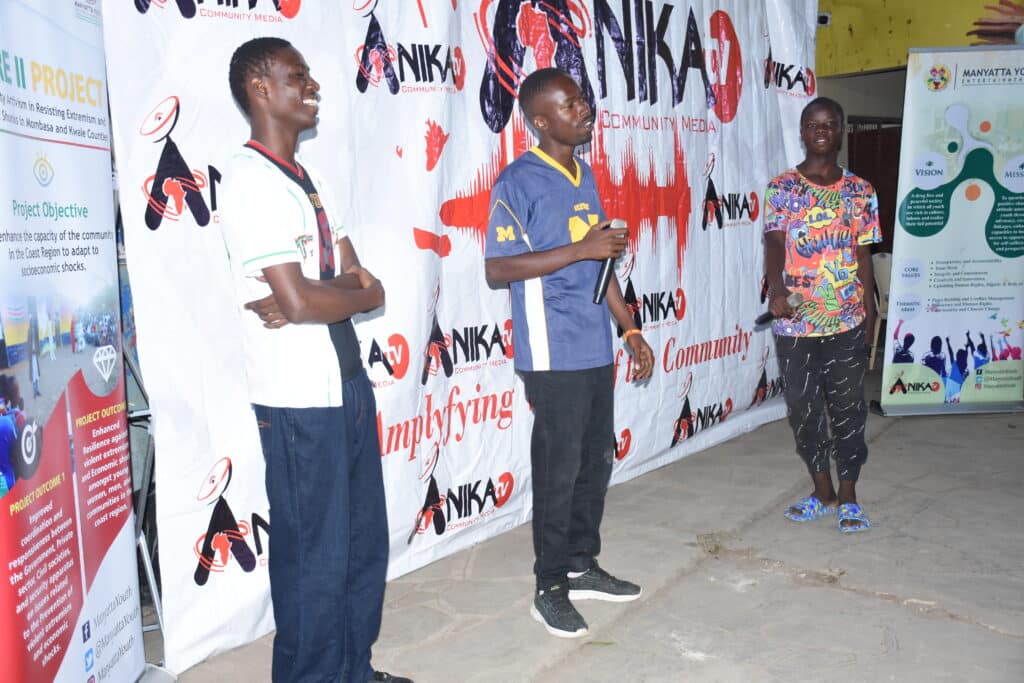
He highlights that photographers pledged to vividly portray environmental issues, ecological beauty, and the consequences of unsustainable practices through art exhibitions.
From the interactive discussion, participants, including village elders, engaged in addressing climate change challenges. They shared personal experiences and ideas for climate action, including sustainable agriculture, waste management, and energy conservation.
Strengthening Community Work through Networking
Further, he expresses his gratitude to several collaborative partners who contributed to the success of the Anika Talent Show.
“As an organization, we prioritize a multi-sectorial approach in programs and project management. According to our strategic focus, one of our critical mandates is to create linkages and alliances with other like-minded organizations and institutions.”
Therefore, Nicholas adds building partnerships and collaborations places the organization at the center of decision-making tables at the county, regional, and national levels.
“This has fostered community ownership and has enhanced sustainability. We collaborate closely with the national and county governments, the private sector, and religious institutions. Also, we collaborate with youth, women, and persons with disabilities networks while forming part of the civil society leadership in Kenya's Coastal region.”
He sees collaboration as fostering cost efficiency and effectiveness, sustainability, and long-term impact accepted by the masses.
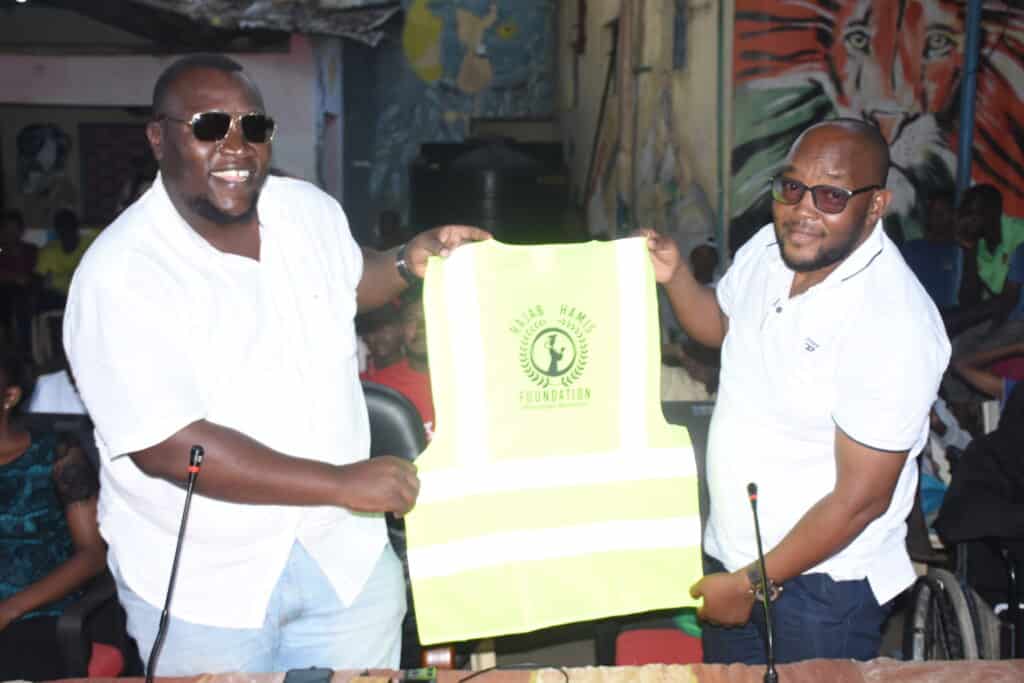
The Lasting Impact of the Goldin Institute Fellowship and Looking Forward
Nicholas acknowledges that he applied the key strategies learned from the Goldin Global Fellowship, from planning to executing the Anika Talent Show.
“Through design, we applied the concept of community asset mapping, which we learned during the Goldin Global Fellowship. In this step, we reflected on the available stakeholders at the grassroots and national levels.”
Further, he elaborates on how they divided into mapping the available resources and funding to support the initiative.
“Identifying potential collaborators was easy, including nominating young people to lead in the activity. Mapping of potential artists within the Anika Community Hub and inviting more from the community.”
Conclusively, drawing from his experience, Nicholas shares his advice with aspiring young people and how they can play a proactive role in their communities.
“The #YouthTribe is a powerful family with all it takes to change the existing narrative and achieve a green economy as a global identity.” he says.
“In most countries, youth form the largest percentage of the population; for example, in my country, Kenya, we are approximately 80% of the population but cannot make a difference if we keep working in isolation. We must unify our voices, be counted, and influence our way to the decision-making table through dialogue and collaboration.”
He draws our attention to the fact that youth cannot win by competing or fighting other stakeholders but by embracing the unity of purpose and fostering collaboration.
Nicholas calls youth to “rise and start building partnerships and networks with multi-stakeholders.”
Illuminating Perspectives: Art and Social Justice

When artist and educator Cecil McDonald Jr. began working with children in the Chicago Public Schools some years ago, he heard something that disturbed him. The children were enjoying themselves in the playground and appeared to be carefree, but when Cecil interviewed them, he heard them “repeating the grand narratives of violence and pain,” a narrative that was created by adults and taught to them through the media they consumed.

He resolved to do something about it by creating images that find dignity and beauty in the everyday activities of African American families, and by empowering the youths to document their own lives through photography.
“I made that my charge,” McDonald said. “You ask them: ‘What image do you see? How do you see those images?’ And then you give them the camera so they can go out and tell their own stories.”

McDonald recently hosted the Chicago Peace Fellows at his exhibit of photographs entitled “In the Company of Black” at the Chicago Cultural Center. Containing large, posed images of African American subjects performing quotidian activities inside their homes – reading, sleeping, playing, getting ready for the day – the exhibit was created by McDonald over seven years to represent what he described as the “extraordinarily ordinary.”
[quote]“Artists are in the business of creating truth, creating magic. I depend on my ability to create to make the everyday seem extreme.” -- Cecil McDonald, Jr.[/quote]
For McDonald as for the other artists, the work had a common purpose with teachers, organizers and others working to empower communities. While artists are usually “the last ones brought in,” McDonald said artists focus people’s energy, reconstitute their self-image, and define their purpose.

McDonald was one of several artists who spoke to the Peace Fellows in an April 2nd workshop hosted by the Chicago Cultural Center entitled "Illuminating Perspectives: The Role of the Arts in Social Change." Tonika Lewis Johnson presented her Folded Map Project while artistic director Jane Saks talked about the intersections between art and social justice and the work of Project&, and Rahmaan Statik Barnes discussed his work as a street artist and muralist.
Tonika’s Folded Map Project utilizes Chicago’s long north-south streets to make visual connections between residents who live at corresponding addresses on the North and South sides of the city. She began the project as a photographic study but it proved very popular with the residents themselves, who enjoyed meeting their ‘opposite,’ and quickly gained widespread attention from mainstream media outlets so that Tonika added video and a new web site. The Folded Map Project is an investigation of urban segregation and its impacts on the people’s everyday lives.

The founding president of the Chicago-based Project&, Jane Saks has participated and led many different kinds of collaborations between artists and activists such as “Working in America,” a traveling exhibition and web archive inspired by Pulitzer Prize-winner Studs Terkel’s 1974 book “Working: People Talk About What They Do All Day and How They Feel About What They Do,” a gathering of photos and stories of working folk in 17 states.
Jane enthusiastically cited her experiences to aver that artistic collaborations are uniquely situated to function as an ‘ecology’ where issues of equality and equity can be defined and discussed.
[quote]“In an ecology, things are not equal. They’re equitable. We’re not born with equality, but we can work for equity.” -- Jane Saks[/quote]
Turning to the Peace Fellows, Jane pointed out the similarities between their work as grassroots organizers and artists.
“As community activists, as social justice leaders, what you’re working to do is what people in the arts do,” Jane said. “Social justice workers and artists are both envisioning a future and creating things into existence.”
The Peace Fellows also heard from Rahmaan Statik, a public artist, designer, fine artist, illustrator and art teacher, who described the inspirations he received growing up on the South Side surrounded by urban art and public murals. A co-founder of a graphic arts and mural collective called R.K Design, Statik has produced over 400 murals and earned commissions for Coca Cola, Toyota, the village of Rosemont, and Red Bull, among other corporate clients.
Uganda Partners Featured in NY Times, Washington Post and more!

We are thrilled to share with you a link to the Associated Press article by Adelle Kalakouti that was just published online by wide range of outlets including the New York Times, the Washington Post, ABC and Fox News about our partner organization in Uganda, YOLRED, the first organization created and operated by former child combatants.
You might already have read about YOLRED’s community gathering in our most recent newsletter. The event was held to celebrate YOLRED’s highly successful first year and showcase the unique music therapy program started this summer.
The words of Jackline Akot, who was kidnapped as a teenager by the Lord’s Resistance Army, illustrate the music therapy program’s powerful effects. Now a 36-year-old mother of six, Jackline acted out a story at the gathering and then spoke about the experience:
[quote]“You would not cope if you were to stay according to the traditional way. So when the group came, they started sharing with us, they started counselling us.” -- Jackline Akot [/quote]
Jackline added that the performance brought her “a lot of peace.”
We’d like to thank Board Member Tom Hinshaw for his support of the music therapy program and for his partnership with the team in Uganda. We’d also like to invite you to join Tom by making a donation to support grassroots driven social change in Uganda and around the world.
Community Celebrates Inaugural Year of YOLRED

On December 12, our partners in Northern Uganda at the Youth Leaders for Restoration and Development (YOLRED) hosted a community gathering attended by several hundred people in the Gulu area to showcase its new music therapy program. This community event capped off the pilot phase of this program but also gave the community a chance to celebrate an incredibly active and momentous inaugural year in operation.
According to program director, Global Associate Geoffrey Omony, the event started in the morning by bringing various constituencies to the venue location from across civil society and government, including the honored guest Deputy Prime Minister Acholi ker Kal Kwaro, the Officer in Charge of Layibi police post Chairman LC III Layibi Division, media outlets such as the National Broadcasting Services, NGO partners including Caritas, and local community members.

“Because there were groups which could not be ready as was expected, the program started a bit late,” noted Geoffrey. Nevertheless, upon arrival, onlookers sang both the national Ugandan and East African anthems, followed by remarks from the local secretary of education who represented the chairman LC III of the host Division. Geoffrey then made remarks on behalf of YOLRED followed by his colleague Kichi David Can, who is the chairperson of YOLRED’s finance and planning committee, and spoke for Bishop Ochola, an organizational patron who is currently bedridden at home in Pece.

Finally, the stage was open for competition in four different categories, including: traditional folk dance, instrumental solo, original composition in the traditional African style and drama. A select panel was chosen to judge the event and determine the results in each performance section. Prizes were awarded for rankings one through five with one group receiving 150,000 Ugandan Shillings ($42 USD) and a certificate of participation; second place recipients took 200,000 shillings ($56 USD) with a trophy and certificate; and, the overall winner a trophy, certificate and 250,000 Ush ($70 USD). All the above prizes were handed over to the group members by the invited guests and the chief guest. Following the competition’s conclusion, participants and attendees were provided transportation back to their respective communities.
The program concluded a highly successful year, even beyond the imagination of YOLRED’s founders. Since the organization’s inception ceremony in August 27, 2016 after four years of planning and development, its founders -- Geoffrey, Charles, Janet, David and Collins -- have maintained unwavering focus on supporting all conflicted-affected children and youth, women, and the poor throughout Northern Uganda. Though YOLRED was unsuccessful in its application for the IDEO Youth Empowerment Challenge, it continues seeking out opportunities and resources to reinforce and expand its capacity, including new applicaitons to the Echoing Green Fellowship and Awesome Prize, among many others.

YOLRED is the first organization created and operated by former child combatants and has a unique mission and approach. In this first year, they secured a four-room office space after moving between a series of Gulu restaurants. This new office holds the organization’s accounting, human resources and administration teams, as well as a large conference room, one large office space allotted for program team and community meetings. As YOLRED leader Charles Okello noted upon opening the new office:
[quote]“Now we are not seen as just a 'briefcase' organization that travels around to meet people where they are but also as an organization that is a safe space to visit. It’s now easier for us to be visible to the national and international organizations that need to hear the perspective of former combatants."[/quote]
-- Charles Okello
Still, the most significant highlight for YOLRED beyond Uganda and the African continent as-a-whole was Janet and Geoffrey attending Arigatou International and the Global Network of Religions for Children’s (GNRC) Fifth Global Forum in Panama City, Panama from May 8-11, 2017. Representing YOLRED and the issue of child soldiers, the two were joined by Goldin Institute Founder Diane Goldin, Executive Director Travis Rejman, Community Learning Associate Jimmie Briggs, Colombian global associate Lissette Mateus and Emeritus Associate Dorcas Kiplagat.

[quote]“Attending the Panama forum was an opportunity for me to travel out of Africa for the first time and was an interesting experience. It also allowed me the opportunity to meet and share with people whom I would have never met before." [/quote]
-- Geoffrey Omony
In reflecting on the experience in Panama, Geoffrey continued: "For the organization, it was a great deal in getting people to know about YOLRED and the work that it is doing in helping the war affected community in Northern Uganda. It also led to the genesis of the music therapy program that the organization has been piloting for the period of six months, which Travis (Rejman) and I first discussed during our time in Panama."
Following the GNRC conference, YOLRED, supported by Goldin Institute advisory board member Thomas Hinshaw, developed a music therapy program to offer an alternative form of psychosocial support to traumatized survivors and victims of war. “Tom did indeed have a very critical role in supporting the development of the music therapy which consequently led to the increased ability of the organization to use music and the arts to nurture physical, emotional and psychological healing of war victims,” said Geoffrey. “The programming priorities of music therapy are: livelihood support to former ex-combatants, education for the children of former child combatants, counseling services, and victim support.”
At present, YOLRED is partnering with Serendipia, a Colombian re-integration program for female ex-combatants created by global associate Lissette Mateus. The two organizations have worked together before on training civilians in a reconciliation process called “ESPERE.” Still, there are definite challenges, and opportunities, facing YOLRED in the coming year.
“The biggest challenges faced by YOLRED this were logistical, including transport, communication, irregular power supply, office equipment, a lack of capacity-building, as well as an inability to reach out to a larger number of ex-combatants,” says Geoffrey.
[quote]“There are quite a number of services that YOLRED needs to better address the challenges but what makes me so proud of the work I and my colleagues are doing is the demand for our services based on the community requests to scale to other areas of Northern Uganda, to assist in designing solutions to community issues, as well as our obvious high level of trust and respect in local society.” [/quote]
-- Geoffrey Omony
Photos from the Community Celebration





